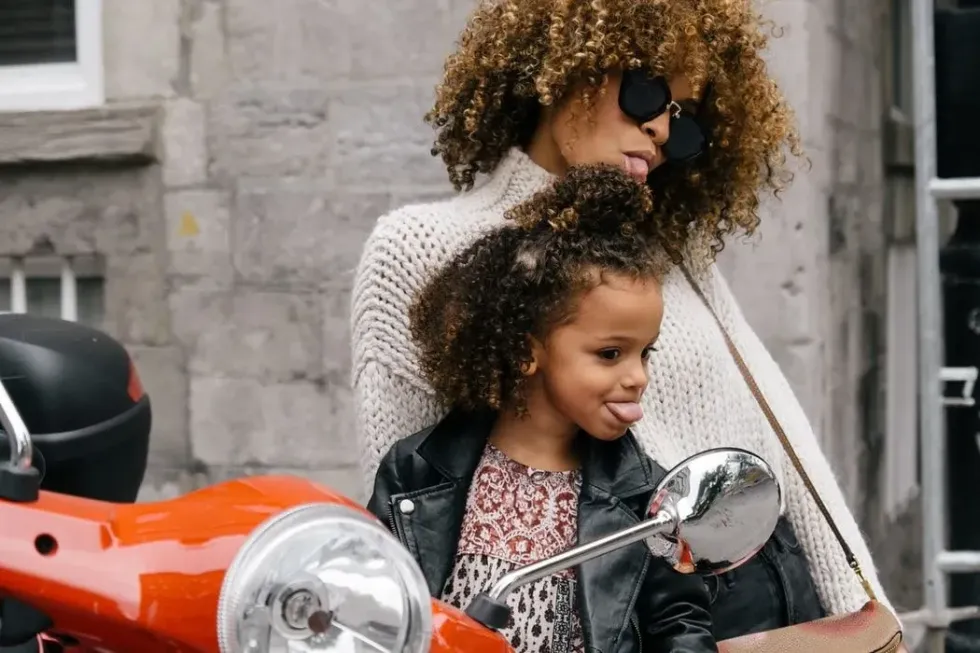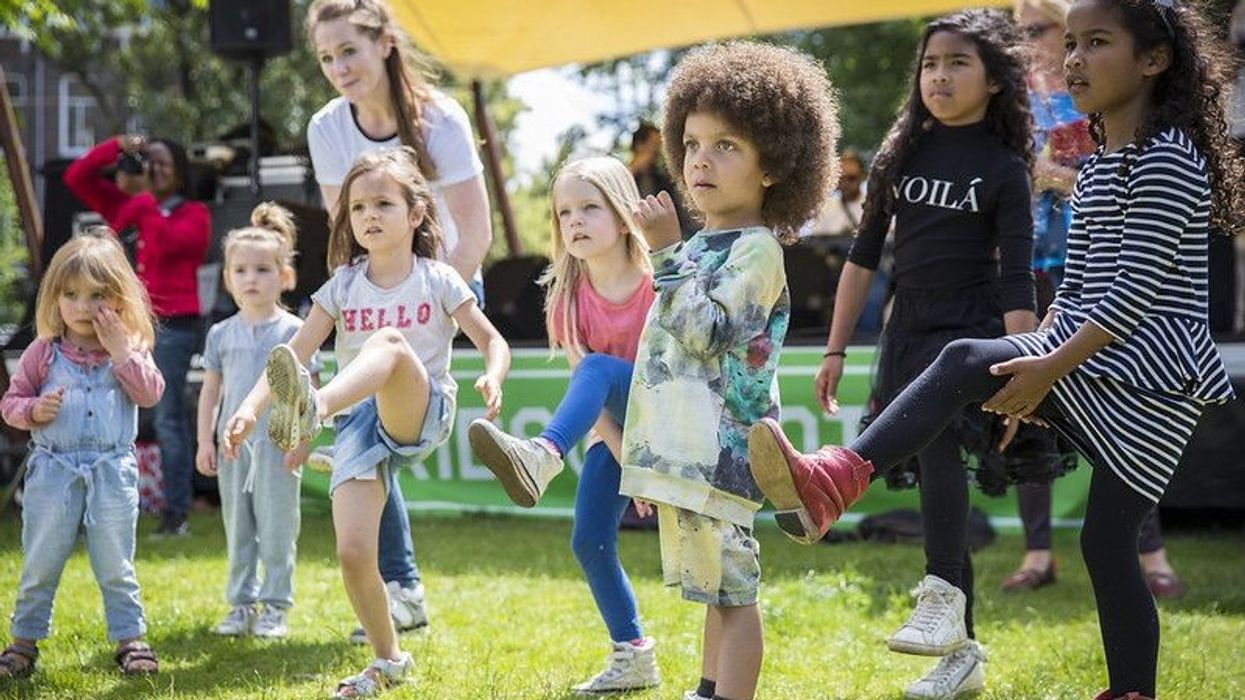In between the toddler tantrums, the millionth time of picking up toys, and the never-ending pile of laundry, what are your children seeing you do they may eventually do themselves?
It's easy to get absorbed in the daily humdrum, but being a positive role model for your child can help them instill good habits from a young age and develop a lasting healthy lifestyle. Many believe that what children see, children do, and it is important to understand the significance of this.
Your children see how you handle stress, they watch how you deal with other people, and they see first hand how you cope with your feelings and the impact. It's true, children see children do.
First things first, nobody is expecting you to be perfect 24/7. We know that role modeling positive behavior is much easier than done, but there are some real do's and don'ts when it comes to how you can create a positive influence and environment around your child.
So read on for some tips about how to take the idea of children see children learn to do to your advantage! For more parenting tips, find out what to do if your 3-year-old's behavior is out of control and explore the idea of [child models] here.
Children See, Children Do: What Does This Mean?
The psychology behind children see children do all comes down to modeling; though just because they saw another child break a pencil doesn't mean they will break a pencil too. Children are continuously learning about the behavioral choices of others, as well as the consequences.
Not all children do what they see, it depends a lot on the reinforcement for a particular behavior as well as other factors, (just look up the famous Bobo doll, children see children do, psychology study!)
Behaviors To Show Around Your Children
Breaking habits isn't easy. Here are a few top tips to get you started with positive behaviors.
Positive Language
Use a friendly tone and make the switch to using positive language. Many parents think this means always praising a child.
In fact, this means avoiding negative phrases such as telling a child what they shouldn't do but what they can do instead. Negative language often leaves children confused about what they shouldn't do.
For example, instead of saying "don't climb on the windowsill", you could say "be sure to keep your feet on the ground" to give them a precise direction.
Show Respect And Empathy Skills
Allow your child to see you being thoughtful and kind to others. Every parent wants kids who are considerate and kind to others.
Be respectful to friends, strangers in shops, and waiting staff, and you can bet your bottom dollar your children will do the same. Remember that those, please and thank yous your parents hammered home to you as a child, really do go a long way.
Researchers have also found that teaching children to be more empathetic to others reduces the likelihood of them becoming a bully.
Tackle The Tech With Your Children
Most parents and caregivers worry a great deal about the amount of screen time their children are getting and its impact. Whether it's compelling games, songs and children's programs, or social media for your teen, think about your usage.
Are you always glued to your mobile? Even though you may have to work continuously, try and create tech-free zones, and times within your household routine. This is a great idea for both you as parents, and your child.

Have A Good Working Attitude
If your children see you lie about being late to work, constantly moan about your boss and co-workers and not give a second hoot about your job, consider how your work ethic might be influencing them. Whether you head off to the office each day or you stay at home, enable your children to see you working.
Involving your children with chores is a great way to sow the seeds of a fruitful work ethic.
Try To Volunteer
From cleanups to animal shelters, to checking in on your elderly neighbors, when you volunteer, you're showing your child actions to take care of the world and the community around them.
Not all charity means giving hours of your time; you can decide with your children which toys to pass on to other children in need or donate supplies to food banks.
Ultimately what you're modeling is that giving back to others is a brilliant way to make the world a better place to live and that we all have a part in this.
That Old Healthy Lifestyle Classic
We know, we know, you've probably heard this a million times before, but when you exercise frequently and eat well, you are providing a fantastic example for your children. What's more, by trying your best to live healthily as a family, you can help reduce the likelihood of childhood-related obesity.
Explain Social Communication Skills
Turn-taking, listening, asking for help if you don't understand are all excellent social skills that we need lifelong. Show your children ways to manage their emotions, like losing graciously or winning without being boastful.
Talk to them about your feelings, both good and not so good, and advise them to open up and do the same. Some good lines include "I am sad because..." and explain why and ways to reason out emotions with your child, instead of acting out.
Behaviors To Avoid Showing Around Your Children
When it comes to things to avoid, you and your partner may not even realize you are demonstrating some negative actions to your children. Perhaps you spend all night watching TV but tell your child to read more.
Maybe you bite your nails but tell your little ones not to put their fingers in their mouths. Start by looking at what you say and what you do to see if there are any significant differences.
The Fine Line With Food
It's important as parents find a balance with food. As much as grabbing a take-out every night isn't great for any parent or child, neither is having a highly restrictive or unhealthy attitude related to food. Obsessing about your body image or your child's can do more harm than good and even result in self-esteem issues.

Negative Language
Think carefully about the words you use in front of your children, and what words your children see you use to other people in your life.
Not Following Through
Does this scenario sound familiar? "If you do that once more, I'm going to take that tablet away" and then don't follow through? Empty threats may result in situations where your child is not listening to you. After all, why would they take their parents seriously if there's a chance they won't go through with the promised actions.
Physical Aggression
This isn't ever advisable. Researchers show corporal punishment can have a hugely detrimental effect on children. It can increase their aggression and result in decreased empathy in children's behavior. Even play joking about it, "go on, just hit him back", is a big no-no for any child.
Applauding Bad Behavior
Yes, it might be lovely and friendly when your child stands up on a table and sings a song to you, but it's probably not for all the other people in the restaurant. If you are laughing or applauding your child with these habits, they may continue to try harder to get more laughs.
Over Scheduling
Do your children see you like an adult tornado racing here, there, and everywhere? Remember, you need to take some time out as parents, and so do they as children.
While you may feel a packed diary full of extracurriculars is essential, remember they need to learn just to be children, and play is just as important to them as any class.
If you found this article helpful, then why not take a look at what to do if your baby climbed out of their crib or our guide to baby modeling?










